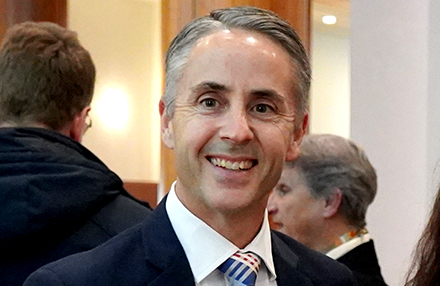Don’t be blindsided by the ‘forestry runs at a loss’ myth. Forestry delivers a lot, write Nick Steel and Michael Bailey.
Much has been said about forestry and the contribution to the economy in recent times, but typically it is a one-eyed view that fails to look at the whole industry.
Some parts of the forestry industry, and only some, are reliant on a state-owned government business enterprise to administer and manage some of the forest resources on publicly owned land. This is the role of Sustainable Timber Tasmania, and just as TasPorts manage the ports and Metro manages public bus transport, STT manages the state’s forests on behalf of the government.
It is important to note that the government land manager is not “the forestry industry”, just as TasPorts is not “the shipping industry” and Metro is not “the transport industry”.
The true forestry industry is made up of myriad private companies and includes plantation owners and growers, plantation and forest management companies and manufacturers and processors of forestry products.
These include fibre, paper, construction ply, framing, dressed timber and engineered construction materials.
Time and time again the private industry cops a broadside based on selective economics that are in no way a reflection of the broader industry.
To point out how 20 years has looked through the eyes of a GBE, through successive governments and through significant changes to forestry policy is an unfair assessment and shows a lack of understanding of the role of government and the role of GBEs.
After all they have other responsibilities and provide other benefits to society than simply to “just make a profit”.
The fact is the forestry sector employs about 5200 people made up of 3076 direct jobs (primary and secondary processing), and 2651 indirect jobs. These are highly skilled and well-paid roles including environmental and forest scientist, data and GIS analysts, professional forest managers, specialist machine operators and production engineers, just to name a few.
Private companies make up about 97% of this employment.
The Tasmanian forestry industry, at the point of sale of primary processed products generated $712m last financial year. This figure rises to more than $1.2bn when considering the flow-on-effects generated in other industries because of spending by the forest industry.
These are real figures from real private companies who are contributing significantly to the Tasmanian economy.
Unfortunately, this has been lost in the political point scoring games by environmental activists.
The Tasmanian Chamber of Commerce and Industry supports these facts and points out that like all economics, assessment metrics need to be understood.
Forestry has always been a critical industry in Tasmania and a significant economic contributor. In addition to the direct contribution, the forestry sector underpins many other sectors in the Tasmanian economy including construction, advanced manufacturing, mechanical and engineering, firefighting resources, silviculture, nursery management and forest regeneration and establishment industries.
Like all industries forestry has had to continually transform, and in Tasmania it has done so with great success, despite competing with global competition and the ever-present pressure of imported goods, often from places with inferior forest practice standards and cheaper labour costs.
Despite these pressures Tasmanian forestry has not only remained relevant but through innovation, investment and modernisation has remained profitable and a key driver of Tasmania’s economy.
If you look to the future, you will see that forestry products are now globally recognised as a solution to many of the climate change challenges that we face.
This means that our forestry industry has become even more important as global demand for forestry products rapidly increases and this will require the industry to continue to transform, as it has done for hundreds of years, and to continue to deliver a sustainable, small footprint, mixed forestry industry that is producing the environmentally friendly building and fibre products of the future.
It is time to support our mixed forest industry, recognise the value of local timber production and leave the rhetoric of the past behind.
Nick Steel, is chief executive of Tasmanian Forest Products Association and Michael Bailey, is chief executive of Tasmanian Chamber of Commerce and Industry.







